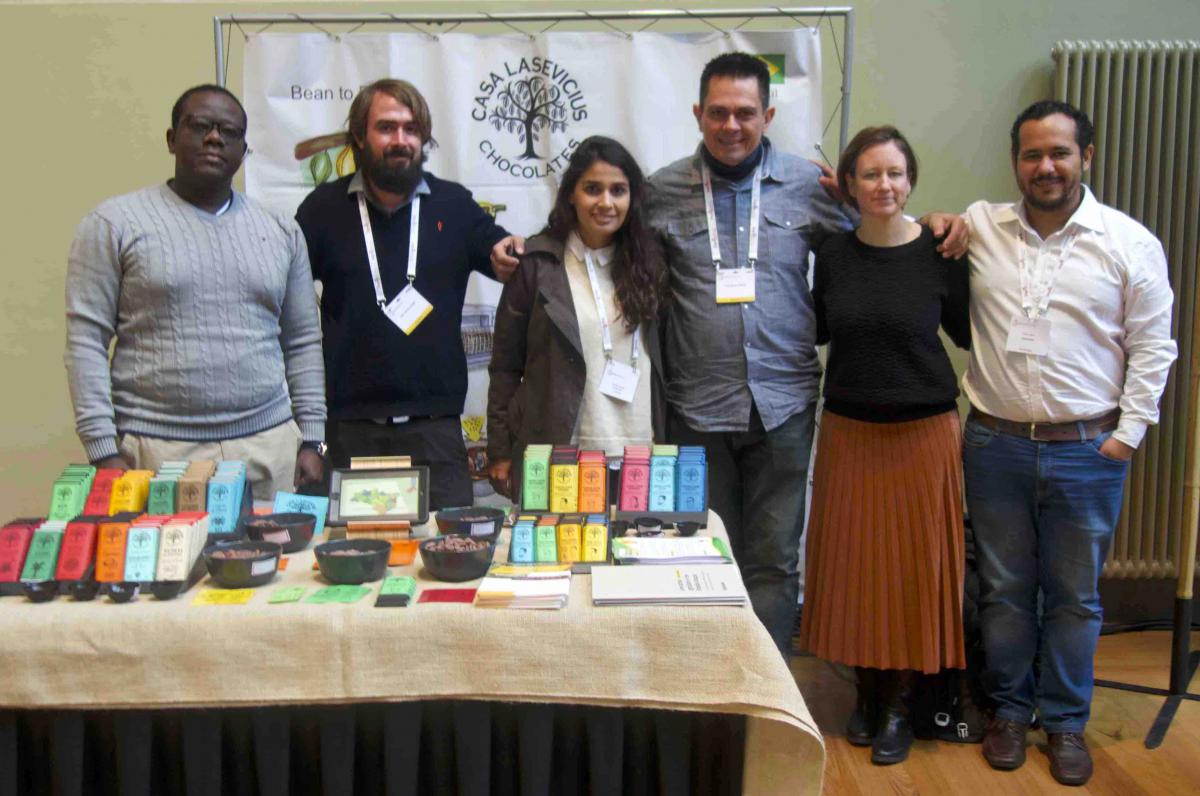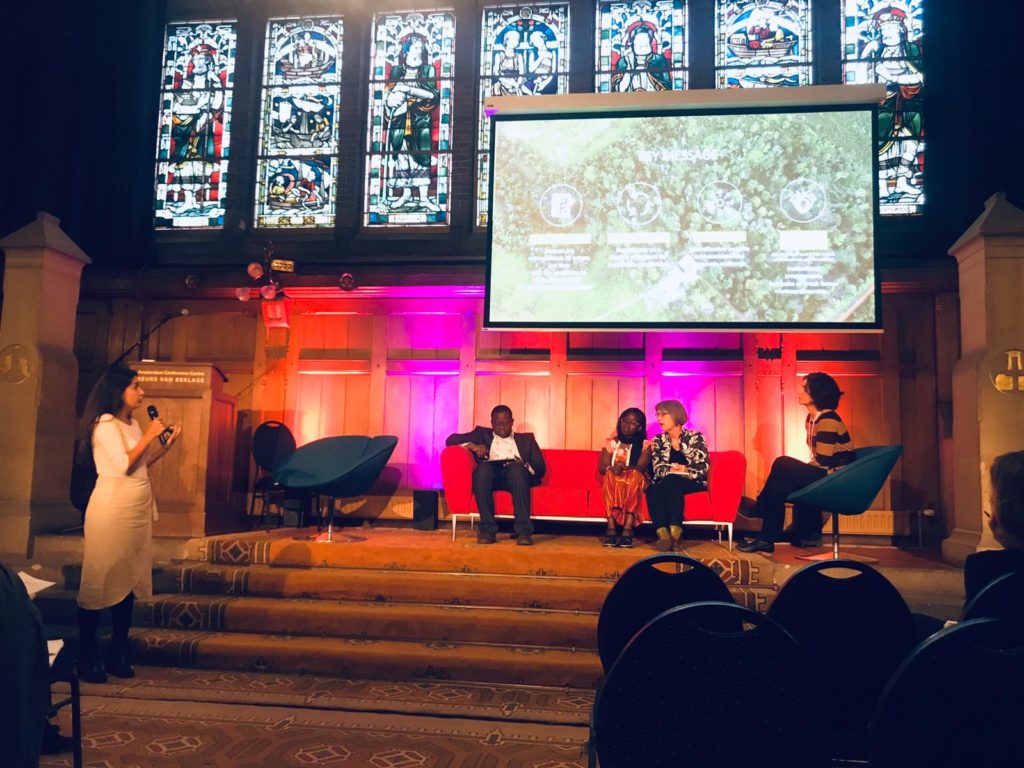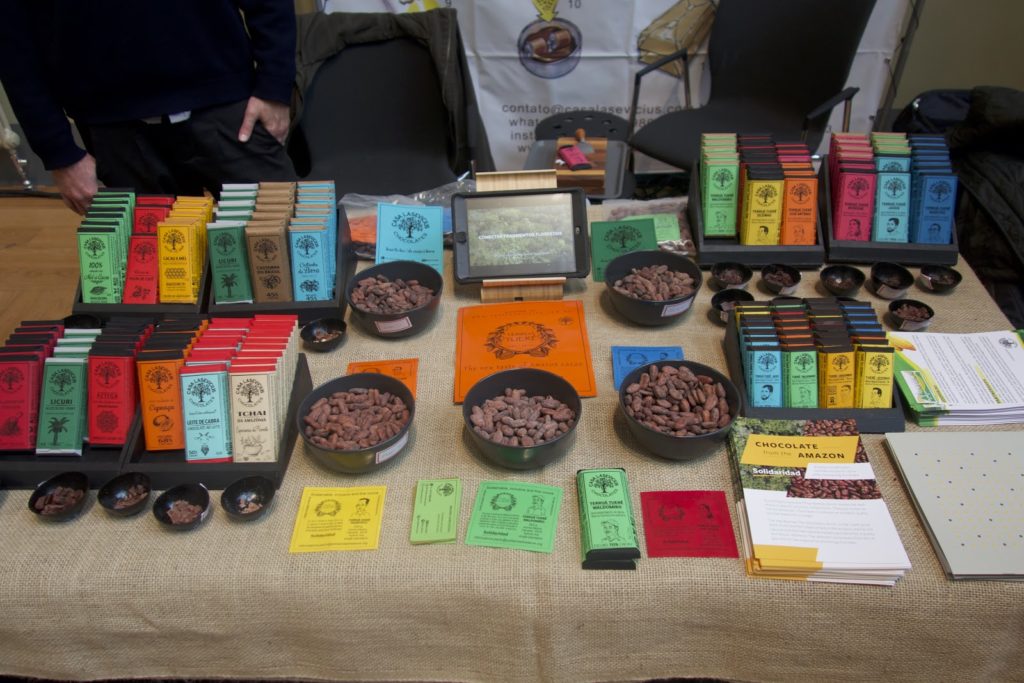
Mariana Pereira from South America and Winston Asante from West Africa, attended the latest Chocoa Conference to present their experiences with farmer entrepreneurship in cocoa. Together with other experts they discussed the barriers, solutions and lessons in improving conditions for farmers.
Pereira and Asante were joined in this discussion by Gaël Lescornec from IDH, Edith Kouame Ehui, a cocoa farmer from Côte d’Ivoire, Henk Veldman from Tony’s Chocolonely and Gustavo Marun Cozzarelli from Hacienda San Jose in Ecuador.
Farmers are entrepreneurs. However, they often do not have the right conditions to reach their full potential. Sustainable production relies on a healthy ecosystem, diversification, and good institutional arrangements. Providing technical assistance, logistics, and knowledge are key in achieving this.
Addressing the barriers for farmers to become entrepreneurs
“In transforming the cocoa sector in Ghana we are looking at several issues that farmers face as entrepreneurs, but one of the topical ones is tree ownership in current agroforestry models”, explained Asante in the panel.
The law in Ghana allocates ownership of naturally occurring trees to the state, while planted trees are owned by the planter. However, lack of a clear basis to differentiate planted trees from naturally occurring trees often leads to disputes between farmers, timber concessionaires, and government actors over the ownership, and hence, harvesting rights of trees in farms.
Improvements in tree tenure legislation currently benefit private forest plantations owners, while farmers find themselves at a disadvantage for their lack of knowledge regarding the laws surrounding tree ownership as well as the lack of adequate provisions to demonstrate ownership of planted and nurtured trees. This hinders effective practice of cocoa agroforestry and other landscape restoration interventions.
In the case of Brazil, where Solidaridad is running a cocoa programme in the Amazon, Pereira addressed the lack of basic infrastructure as the main barrier for entrepreneurship: “Lack of access to knowledge, technical assistance, inputs, logistics and direct trading channels impact at farm level, so farmers have no planning, don’t understand their costs and are not able to implement good practices”.

Strategies to return tree ownership to farmers in Ghana
Solidaridad is currently creating new agroforestry models in Ghana that allow farmers to prove that they planted their trees, in order to claim ownership, and safeguard planted trees in cocoa farms.
“We are working hard to create awareness and build capacity around tree ownership for farmers to assert their rights and be better environmental stewards” – Winston Asante, Solidaridad Ghana
Also, the cocoa programme in Ghana is strengthening community forest governance structures to better engage timber concessionaires, and is working to provide hard core evidence on challenges with tree ownership security and registration of planted trees. Through lobbying and advocacy in partnership with other civil society organizations, Solidaridad is aiming to influence policy review and legislation around tree ownership.
Improving infrastructure in the Brazilian Amazon
Different strategies are being implemented in the Amazon to provide for the lack of infrastructures in the region. Diversification on farms, by integrating livestock and cocoa in agroforestry systems, and access to the bean-to-bar market are one some of them.

Diversification benefits environmental and economic resilience. On one hand, it provides cash crops—adding sources of income and improving food security. On the other hand, low carbon practices can increase productivity, financial results, and business opportunities.
“This model has improved the quality of cocoa beans and is attractive as sustainable sourcing. This has enabled many of our farmers to sell their cacao on the Bean to Bar market, at a price up to four times higher than regular market prices” – Mariana Pereira, Solidaridad Brazil
Institutional arrangements (i.e. security of land & tree tenure, subsidies/taxes, private policies) can make or break farmer entrepreneurship. Putting more attention to enabling environments and starting to shape them in a way that is conducive to farmer entrepreneurship is the way forward, but only if local stakeholders work together to understand challenges and develop solutions.
>Read more about Solidaridad’s work in the cocoa supply chain
